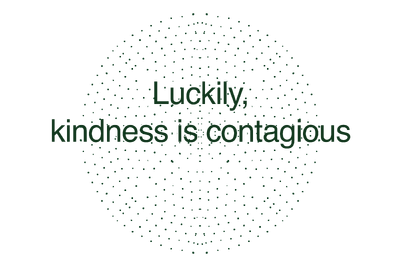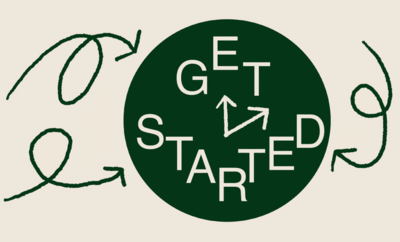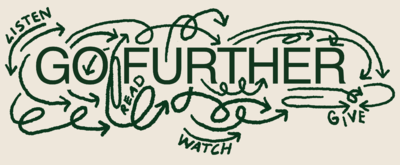In a crisis, compassion comes naturally to most of us. It’s hard to ignore tragedy, and we’ve had plenty of it lately. This past year has been an exercise in shared compassion for all of us.
But what about ordinary compassion? Each day offers tiny opportunities to lend a hand. From assisting a stranger who spilled their groceries on the sidewalk to bringing a friend food when they’re sick, when you help someone else, you also help yourself.

We use sympathy, empathy, and compassion interchangeably, but they aren’t the same. Sympathy is a fleeting realization that someone is suffering. We say, “Oh, that’s too bad”—and move on. Empathy and compassion are more complex. While empathy means feeling somebody’s suffering with them, compassion includes taking steps to make things better. “It’s empathy in action,” explains Magalie René, a compassionate leadership coach who helps Fortune 500 companies build inclusive workplaces. Empathy is what made people talk about the mask shortages at the beginning of the pandemic; compassion is what had them dusting off their sewing machines.

Our brain is wired to crave connection. Brain imaging research shows that when we give to others, the reward center of the brain gets activated. Giving feels physically good. And, what’s more, there’s a biological reason that we feel compelled to be generous with people we feel close to: The bonding hormone, oxytocin, makes us more altruistic, according to a study in PLoS One. When researchers squirted oxytocin or a placebo up people’s noses, the ones who got the oxytocin were 80% more generous with a stranger.
On the other end of the spectrum, we are also wired to feel others’ pain: The same part of the brain that lights up when we get hurt lights up when we see someone else get hurt. And the threat and nurturing centers of the brain get involved. So we sense trouble on behalf of others and are biologically programmed to want to help, according to compassion researcher Dacher Keltner, PhD, of the Berkeley Greater Good Science Center.
And when we lend a hand, we get all kinds of benefits for ourselves. We might live longer: Older people who selflessly volunteered were less likely to die during a University of Michigan study than non-volunteers.
Or, at the very least, we’ll be happier: People instructed to spend money on others were happier than those told to drop the cash on themselves, according to Harvard Business School research.

Witnessing kindness inspires more kindness (“paying it forward” is a proven psychological phenomenon). One study published in Proceedings of the National Academy of Science revealed there’s a ripple effect when someone helps, and it spreads by three degrees. That means you may just get a chain reaction going next time you do a small good thing (for ideas, see “Get Started” below).

Self-compassion—being kind to ourselves and recognizing we’re only human—is just as important. But moms and women of color, in particular, face strong social pressure to deprioritize their own suffering, points out Akeera Peterkin, a licensed clinical social worker.
It isn’t easy to treat ourselves as gently as we would a close friend, but it’s so worth it. Studies show war veterans who are more self-compassionate have less PTSD. People with depression who learn to accept their faults have fewer symptoms. And self-compassionate teens are less stressed.
It all comes down to giving yourself a break.

Do a five-minute favor a day
It’s a feel-good habit Wharton professor Adam Grant, PhD, swears by. Introduce two people who’d benefit from knowing each other…let someone with a small cart go in front of you at the Trader Joe’s checkout…grab your neighbor’s garbage lids that have blown into the street. Done.
Bring kindness online
Social media can be a force for empathy, insists Jamil Zaki, PhD, director of the Stanford Social Neuroscience Lab. Start a positive culture today: Have the back of someone getting senselessly bullied in a thread, leave a rave Google review for a local business that’s struggling, DM a hi to someone you suspect feels out of the loop.
Follow your passion
“People think being compassionate has to be miserable and tough, but it can be joyful,” says René. The trick is to find the sweet spot where your talents overlap with the needs of others. For instance, if you love a DIY project, volunteer to help build houses for the homeless. If you’re great with plants, offer to help an elderly neighbor take care of their garden.

READ
Berkeley professor Dacher Keltner’s Born to Be Good: The Science of a Meaningful Life for a breezy spin through the science of compassion.
WATCH
Wharton professor Adam Grant’s TED talk Are You a Giver or a Taker? to find out whether you’re a giver, taker, or matcher—and why it matters at work.
LISTEN
Learn why paying it forward is surprisingly powerful in “The Science of Compassion” episode of Hidden Brain by NPR.
GIVE
Got a free hour you want to put to good use? Go to Volunteer Match, type in your zip code, and choose a category (environment, animals, seniors, etc.) to find volunteer opps in your area

Wellness stories you won’t find anywhere else.

